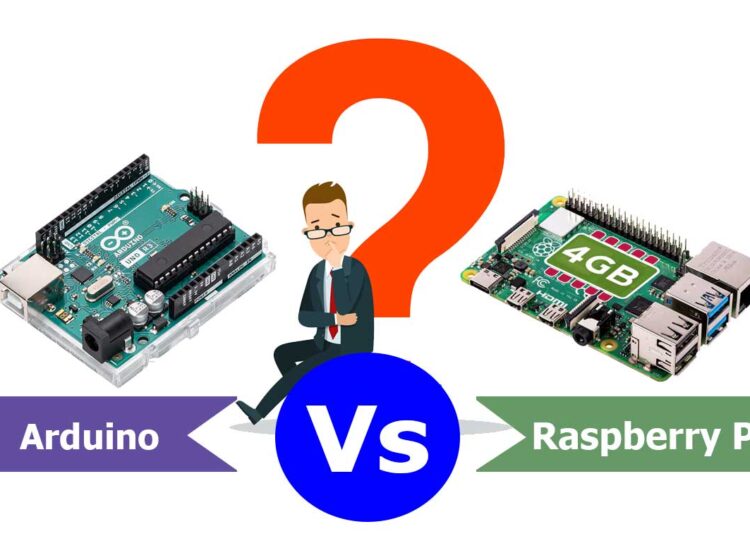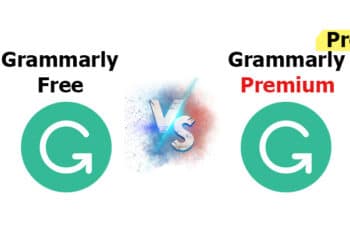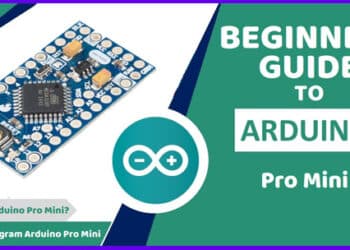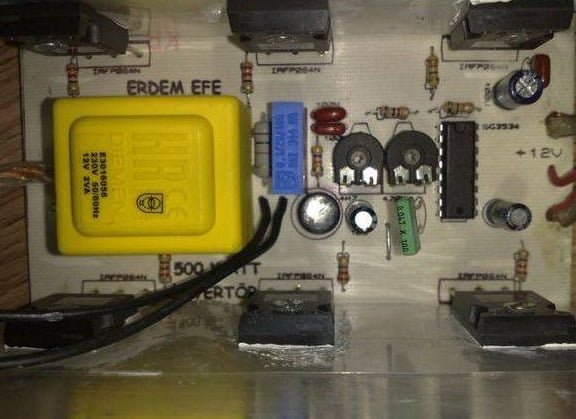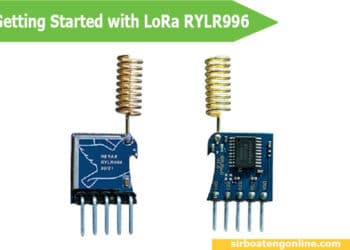You’re not alone if you’re wondering whether to use an Arduino or a Raspberry Pi for your next electronics project. Let’s compare Arduino vs. Raspberry Pi, as both platforms are popular for DIY electronics projects and have advantages and disadvantages. For beginners, the Arduino Pro Mini is also an excellent choice.
The battle of supremacy as to which of these boards is the best is very tight. Sometimes it becomes challenging to choose the right board for your project.
For this reason, I have crafted this article to shed light on Arduino vs. Rasberry Pi to help you choose the one that is right for your next project. Comparing these two boards is good to know what they are and where they shine better.
So grab a cup of coffee (or “soobolo” if that’s what you have), relax and let’s sail through the show of raspberry pi vs. Arduino banter. Let’s see who wears the ultimate crown and who gets the uppercut.
Table of Contents
What is Arduino?
Arduino is a free, open-source electronics platform built on simple hardware and software. Arduino boards can read inputs such as a light on a sensor, a finger on a button, or a Twitter tweet and convert them into outputs such as operating a motor, turning on an LED, or posting anything online.
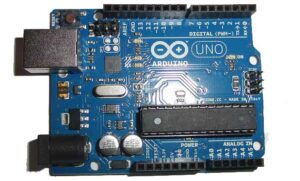
You may command your board to perform anything by passing a series of instructions to the board’s microprocessor. You achieve this by using Arduino Software (IDE), which is based on Processing, and Arduino Programming Language, similar to C++. Arduino software is available for Windows, Mac OS X, and Linux.
Over the years, countless projects, ranging from simple household items to intricate scientific equipment, have used Arduino as their brain. Students, enthusiasts, artists, programmers, and professionals worldwide have converged around this open-source platform; their contributions have built up to a significant quantity of accessible information that may greatly assist both novices and specialists. Learn more about Arduino Programming here.
Pros of Arduino
- As stated above, Arduino is a microcontroller-based platform that became popular for its simplicity and ease of use. Moreover, Arduino boards are relatively inexpensive. You can get an Arduino Uno board, as low as $4 or less, to control various electronics projects.
- The Arduino IDE is also easy to use, and the catchy part is that there’s a large online community of Arduino developers to help you if you get stuck anytime, anywhere.
- Arduino is open source. It means you can modify the board and the source code without dealing with legal issues. Yes, you can do what you like with the Arduino board. You can create your board version and give it any fancy name. What name do you prefer? Just leave it in the comment box. But wait, I have already chosen “Boatiuno” 😎
- Thanks to its popularity, it is easy to find parts such as sensors and modules for your Arduino board. Because of this, it is easier to expand Arduino to so many fields.
- Arduino is great for beginners because of its open-source popularity, large community, availability of sensors and modules, and relative ease of usage.
Cons of Arduino (Arduino vs. Raspberry Pi)
Arduino may appear to have a great deal of taste. However, a few possible drawbacks of Arduino should also be discussed so we can have a probable verdict on this Raspberry Pi vs. Arduino article.
- Arduino boards, like the Uno, Mega, Nano etc., don’t have the same processing power as a Raspberry Pi.
- They (with an exemption of the recent Arduino WiFi board) also don’t have built-in WiFi or Bluetooth, so you’ll need to use additional hardware, breakout or module to connect them to the internet or other devices. This piles up the cost of building a complete project that makes use of WiFi or other wireless connectivity.
- Even though improvements have been seen in the recent updates, the Arduino IDE is not as robust as some of the other development environments out there. This can make it more difficult for beginners to get started.
- Furthermore, the Arduino is based on the Atmel AVR microcontroller. This microcontroller has been known to be somewhat difficult to work with compared to other microcontrollers.
What is Raspberry Pi?
Raspberry Pi is a small, single-board, low-cost computer famous for its high processing power and flexibility. It was designed in the UK by the Raspberry Pi Foundation. Unlike Arduino boards, Raspberry Pis can run an entire operating system, which means you can install and use software on how computers operate.
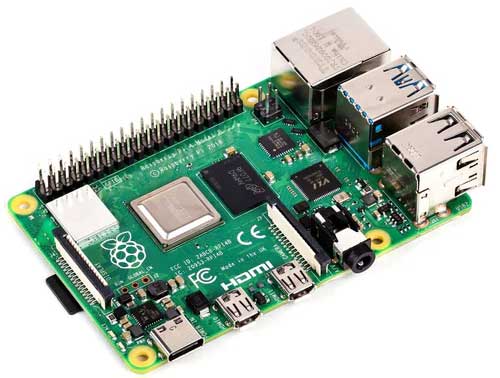
The Raspberry Pi is used to learn about computer programming. And like the Arduino, the Pi is also used to create digital projects and services. As stated earlier, the Raspberry Pi has a pre-installed operating system and software tools.
A critical feature of this development board is that it can be connected to the internet to access online resources out of the box. It is achieved by either the onboard WiFi module or the Ethernet port.
The Raspberry Pi was designed as a teaching tool to enable people to create their digital projects. It is available in various models, including a model for hobbyists, a model for schools, and a model for developers.
Compared to the Arduino, the Raspberry Pi has a small footprint but can be used to create various digital projects and executable software. We can even install the Arduino IDE on the Raspberry Pi to program the Arduino board.
Pros of Rasberry Pi (Arduino vs Raspberry Pi)
The Raspberry Pi can be used for many things. These are some of the strengths of the Raspberry Pi that will compel engineers or hobbyists to use it for projects.
- Building a simple computer. Yes, the Pi has an appreciable processing power that will allow you to build a simple computer.
- Developing software. The Raspberry Pi board has your back if you are a software developer. They run the Linux operating system enabling you to install text editors and IDEs directly on the board.
- Making a digital product or service. It can be used as a server that serves other computers with resources. Services such as hosting the Internet of Things (IoT) backend, Home automation and smart controllers can easily be given to the Raspberry Pi, and it will handle it excellently.
- Built-in Display Adaptor. Unlike the Arduino, which requires an LCD or TFT screen to display its output, the Raspberry Pi has a built-in video adaptor that easily connects to an external monitor.
- More Memory Space. The Raspberry Pi comes with a variety of RAM and also supports external SD cards.
- More processing power. Regarding processors used in the Raspberry Pi, the Arduino boards are far behind the Raspberry Pi. Even though the recent Arduino models are advancing but they still lack behind the Pi on processing power.
Cons of Rasberry Pi
There are several potential cons of using a Raspberry Pi board.
- First, the Raspberry Pi is a low-cost board (computer), so it may not be the best option for high-performance applications. However, this is not the case when we compare it with Arduino.
- Additionally, the Raspberry Pi does not include a lot of built-in hardware, so it may be necessary to purchase additional hardware to use the board effectively. This adds to the cost of building a project around it.
- Finally, the Raspberry Pi is not cost-effective for simple microcontroller projects. Developing simple traffic light projects or sensor-activated projects with the raspberry pi is not economical.
Conclusion on Arduino vs. Raspberry Pi
Choosing between an Arduino and a Raspberry Pi depends on what you need it for. An Arduino is an excellent choice if you need a basic microcontroller for a simple project. A Raspberry Pi is better if you need a full-fledged computer for more complex tasks. Here are some things to consider when making your final decision:
Arduino:
- Microcontrollers (Arduino) are cheaper and easier to use than full-fledged computers like the Raspberry Pi.
- You can use an Arduino for projects that don’t require a lot of computing power, such as simple electronics projects.
- Arduino boards are smaller and more portable than the Raspberry Pi, with the exception of the Raspberry Pi Pico.
Raspberry Pi:
- Raspberry Pis are more powerful than microcontrollers like Arduino. So they can handle more complex projects and perform faster.
- The Raspberry Pi is a full-fledged computer, so it can do things like run a web server or play video games out of the box.
Hit the comment box if you agree or disagree with the reviews above or if you have more personal insights on these boards that escaped this article.
